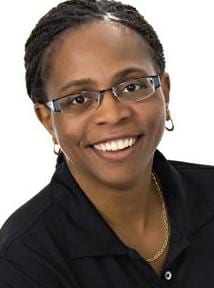Following a historic drop to third place in May’s federal election, the Liberals are looking for ways to reclaim some support, starting with Canada’s queer community.
Some Liberals are calling for greater engagement with Canadian queers, including the possible resurrection of a gay Liberal organization, while others say Liberals should champion queer rights in countries where gays are persecuted.
“Clearly we need to do something different, and one sure-fire way to get some new ideas is to bring in some new people,” says Catherine Meade, an out lesbian who ran for the Liberals in the 2008 election in Halifax Centre.
Meade thinks attracting queer voters means the party needs to better highlight its achievments.
“It’s really important to remind people who we are, and certainly in terms of the queer community,” Meade says. “We are the party of the Charter. This is a non-partisan analysis to say all roads to any of the gains we’ve made have come straight from the Charter. Were it not for our party… we wouldn’t have these gains that we as gays and lesbians are enjoying.”
Meade feels that while the NDP may have been supportive, it was the Liberals who actually did the work, but the party has not been good at showcasing this.
It was under a Liberal government that the legal definition of “spouse” was changed to include same-sex couples, immigration rules were altered to cater for same-sex partnerships and same-sex marriage was legalized.
“We’ll see how the NDP handle their new responsibilities,” says Liberal MP Scott Brison, the only out gay MP currently in the caucus. “I think that now with a far-right party in government and a far-left party in Official Opposition, the need for a centrist alternative like the Liberal Party is more important than ever.”
Some queer Liberals think it may be time to resurrect Liberal Pride – an organization backed by Liberal Party heavyweights such as former MP Sheila Copps and Jean Chrétien that was formed ahead of the May 2009 policy convention.
The group, which aimed to attract queers to the party, lost momentum following the convention.
“Liberal Pride was a challenge because we were trying to build an organization from the ground up,” says Justine Villeneuve, the former co-chair. “It wasn’t ultimately an organization that was able to move forward, but I think the Liberal Party as a whole has to do more to reach out to the grassroots.”
Brison thinks part of reaching out and bringing in fresh ideas means looking further afield.
“We need to look at where the next frontier will be, and including our role internationally in terms of protecting and defending [queer] rights,” he said. “We’re quite fortunate to live in the generation that we live in and to be part of this generation. I think the [queer] community working with public figures in the Liberal Party and in other parties can do more.”
But Villeneuve feels there is also more work to be done in Canada.
“There is a huge urban/rural divide in terms of what rural queer kids experience,” she says. “Often as an urban queer woman, I take for granted sometimes that it’s just not the experience that young rural queer kids are having. There are issues about fitting in, about bullying, about making sure that people have access to the resources they need.”
Villeneuve sees adoption, parenting and care for queer seniors, and families in general, as emerging issues.
At the riding level, party organizers need to hold more events that focus on their queer constituents, says former Ottawa Centre riding president Denis Schryburt.
“What they need to do is start going into the large suburban areas because that’s where the queer community is now,” he said. “They’re coupling up and moving into the suburbs, into the gated communities and golf cart communities, so that’s where they need to focus.”
Schryburt adds that local riding organizers need to keep queer issues visible and to try to get their candidates or MPs to support them.
“When they’re having an event or a rally, throw in the gay issues,” he says. “[Ottawa Centre Liberal candidate] Scott Bradley, during his nomination, did it all the time. There was always a mention of the queer community, and he was speaking to the converted, but he still had it in his speech all the time.”


 Why you can trust Xtra
Why you can trust Xtra


